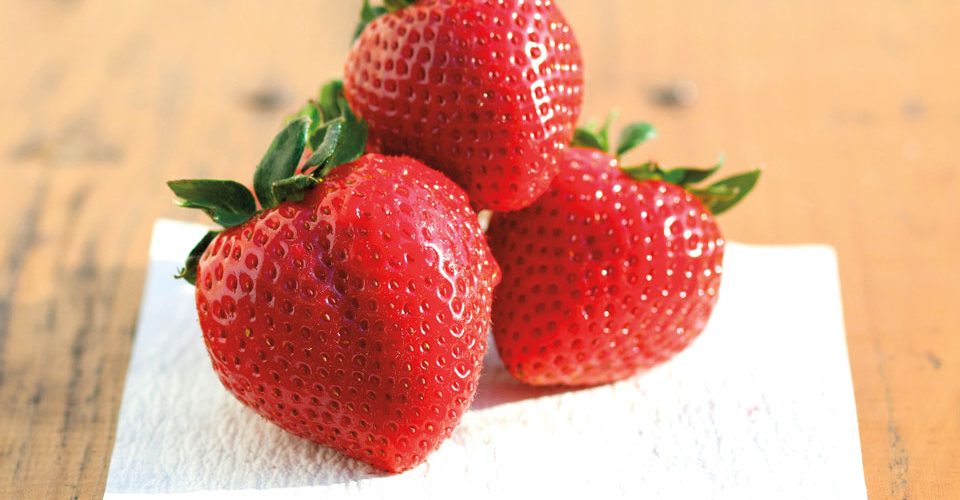Kavita Shukla was 14 years old and visiting Bhopal, India, when her grandmother brewed her a spice tea to ward off sickness. Seventeen years later, the spices from that tea are now the key ingredients in a product that Shuklar hopes will help get food to millions in the developing world.
Kavita Shukla was 14 years old and visiting Bhopal, India, when her grandmother brewed her a spice tea to ward off sickness. Seventeen years later, the spices from that tea are now the key ingredients in a product that Shuklar hopes will help get food to millions in the developing world.
Shuklar’s product is called FreshPaper. It’s a 12.7-centimetre2 sheet of paper infused with spices, including fenugreek. Shukla claims that fenugreek contains compounds that inhibit the growth of the bacteria and fungus that contribute to food spoilage. Put a sheet of FreshPaper into a container of fresh fruits or vegetables and – according to the marketing – the produce will last two to four times longer. It’s a simple, low-tech solution intended for areas stricken by famine or chronic malnutrition, and a response to the global problem of too much food waste.
FreshPaper came out of a middle school science project Shukla did on her grandmother’s spice mixture after she discovered its antimicrobial properties. She patented the idea in 2002 and returned to the product in 2010, launching Fenugreen LLC. “We started with no funding and no marketing budget,” says Shukla, who began by showing FreshPaper to businesses and bringing packages to farmers’ markets.
Her story drew attention from food and environmental blogs, Oprah Magazine and others after she gave a five-minute presentation at the TEDxManhattan event in January 2012. Shukla’s business model is to sell to the rich and give to the poor. The first part is going well; she scored big when Whole Foods picked up the product for sale in the US, increasing FreshPaper’s visibility and allowing volume to scale up.
“We made it by hand in my kitchen for almost the entire first year,” recalls Shukla. “Now, for the last year, we have a warehouse and a R&D facility in Maryland.”
Giving to the poor has been trickier. Fenugreen donates one package of eight sheets to a local food bank for every purchased package. Shukla declined to say how many food banks have taken them up on the offer, or how many packs have been donated.
RELATED: Beyond Food Banks
Food banks generally handle more fresh produce than in the past as they try to improve the quality of their services. However, Amanda Finley King, a manager with the Ontario Association of Food Banks, says spoilage isn’t an issue for the vast majority of its storage facilities. She explained that demand is so great that they maintain a one- to two-day turnover of produce.
While some US food banks do need the help and accept FreshPaper, the original mission has always been to help the poor of developing nations. “Over the last few years, we’ve discovered just how difficult it can be to give something away,” said Shukla. In her talks and marketing materials, Shukla repeats that nearly a third of the world’s food is wasted, and implies that reducing food spoilage would go a long way towards ending famine.
Banerjee suggests Shukla’s product could specifically help small-scale farmers to get their harvest to market. If FreshPaper can prevent some spoiling, produce can travel further to get a better price. Banerjee also emphasizes that the best thing would not be to ship FreshPaper in packages, but instead to teach local farmers the recipe so that they can make it themselves and become more self-sufficient. In India, where the spice tea that inspired FreshPaper came from, this should be possible.Nipa Banerjee, a 35-year veteran of NGOs and an International Development professor at University of Ottawa, points out that the reasons for hunger and malnutrition in the developing world are not primarily food spoilage. In famine conditions, the poor need basic cereals; fresh produce is a luxury item. And in cases where diets are only missing certain nutrients, the problem is that food products with basic nutrients are not available. “If the poor grow vegetables in small gardens, they will consume it, not let it rot,” says Banerjee.
Over the last few years we’ve discovered just how difficult it can be to give something away.
– FreshPaper inventor Kavita Shukla
Helping farmers get their produce to markets is on Shukla’s mind. She tells the story of an NGO worker bringing a suitcase of FreshPaper to Haiti to help out women running a small fruit catering business.
Fenugreen has no formal partnership with those Haitian women or any NGO, though Shukla travelled to India in February 2014 with the hope of being able to announce one soon afterwards. “We’re still in the process of selecting exactly who would be the best,” she says. “We’re trying to work with NGOs that are already working with farmers.”
One concern for NGOs might be the absence of evidence to back up Fenugreen’s claims. Shukla refers to experiments done during her teenage years, but details are not forthcoming. Without knowing how well the product works, it’s hard to determine where it can be useful or how much an organization can rely on it.
There is plausibility to FreshPaper’s claims. Extracts from onion, coriander, garlic, mustard, chilies, ginger, thyme, oregano and fenugreek have all shown at least some antibacterial or antifungal effects for some foods, in some conditions.
Food goes bad in two different ways. The first, called senescence, is when the food’s cell walls and membranes break down as part of the natural ripening process. As the tissues lose their rigidity, the chemistry within the food changes, affecting taste, odor and texture. Spoilage can also mean the infection and growth of bacteria or fungus. In general, produce has to begin senescence before the microbes can invade the tissues and use the energy stored inside to grow.
Products that slow down the process of senescence will also postpone the growth of microbes, but it doesn’t work the other way around. Even completely disinfecting fruit will not stop its internal ripening process. University of Guelph food science professor Gopi Paliyath says it is likely that FreshPaper will slow the growth of relevant bacteria and fungus, but he doesn’t think it’s possible that it also prevents senescence. In other words, FreshPaper won’t stop the strawberries from getting soft and mushy, but it could stop them from growing fuzzy mould for a while.
Paliyath is also skeptical that it would work in open-air containers. If a bowl of apples with a sheet of FreshPaper sat on a counter, the antimicrobial compounds would have a very low concentration around the fruit – too low, Paliyath suspects, to have an effect.
With some of FreshPaper’s claims being plausible and others doubtful, the only way to settle the question will be for Fenugreen to release information about their testing, or for someone else to do the experiments. If FreshPaper really works as well as Fenugreen claims, and Shukla is willing to prove it, then it should be much easier to find a partner and start changing the shelf life of the planet’s produce.
There was a charming moment in Shukla’s TEDx talk. She said that FreshPaper could save some of the food that is wasted around the world, potentially alleviating starvation, as well as making it “possible to eat my entire CSA share.”
The audience laughed, but there was a hard grain of truth in Shukla’s admission. Until NGOs take Fenugreen up on its offer, the spice recipe Shukla brought from India will be stuck solving first world problems for environmentally conscious Americans.
Ben is a former A\J editorial intern. He’s currently a freelance writer based in Ottawa. He tells stories about nature, science and policy.
Ben is a former A\J editorial intern. He’s currently a freelance writer based in Ottawa. He tells stories about nature, science and policy.













